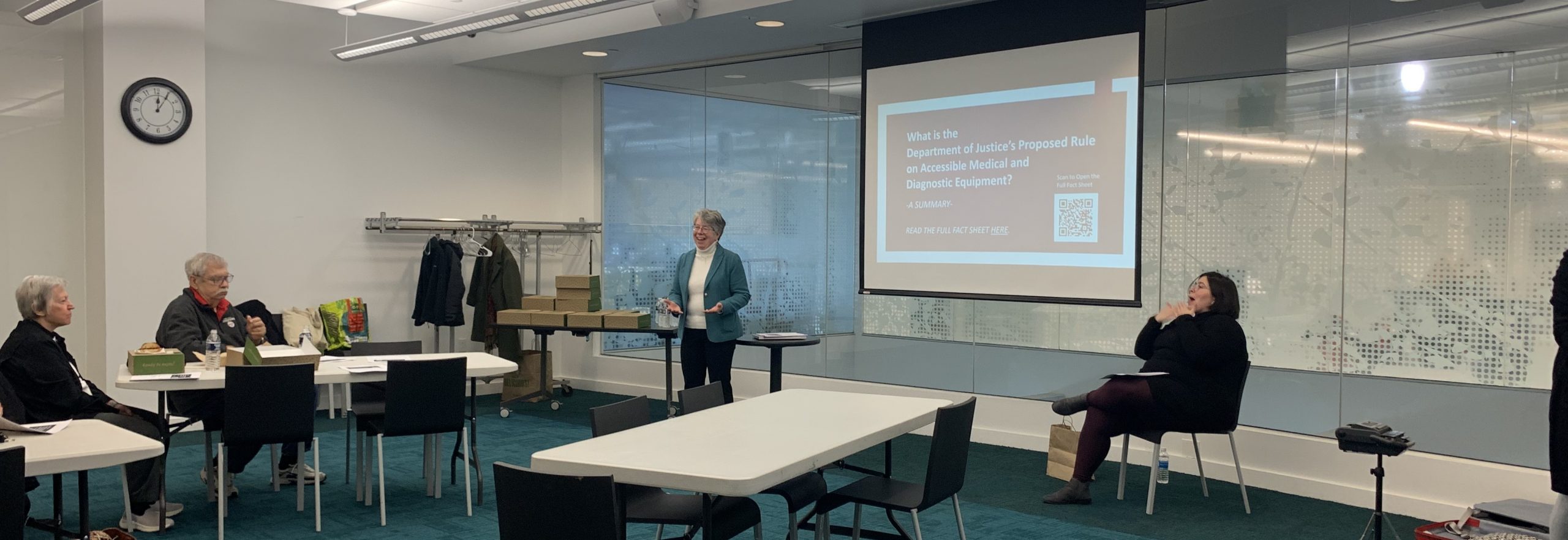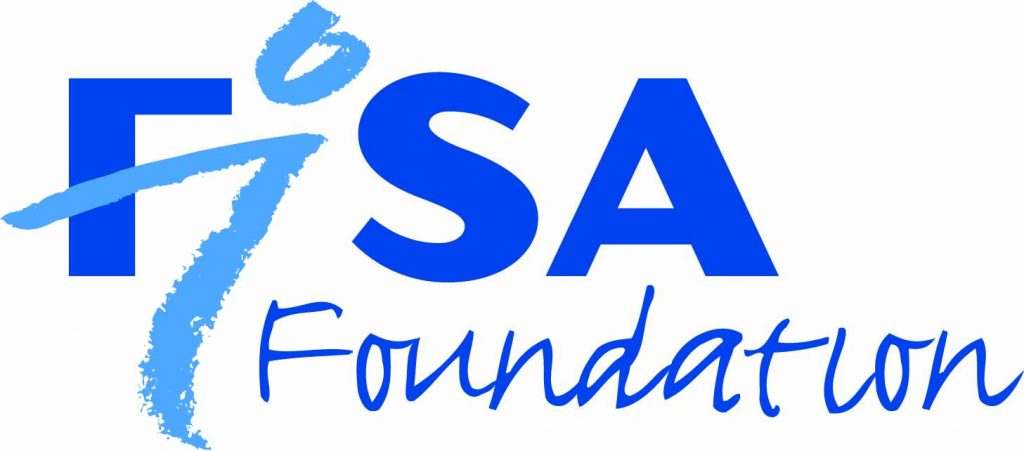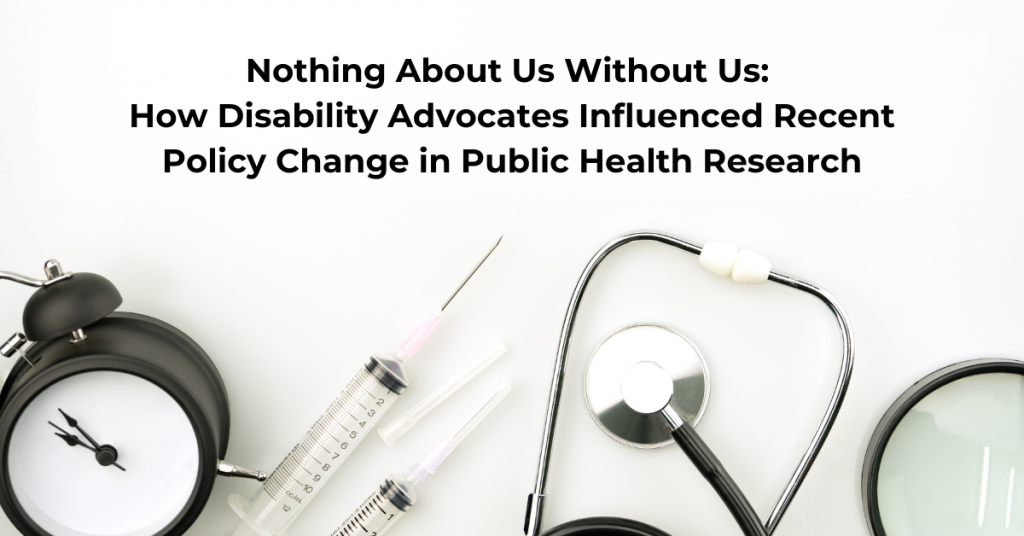
Access to Healthcare
Many barriers prevent people with disabilities from receiving quality, accessible healthcare. FISA Foundation prioritizes advancing access to health care and dental care for people with disabilities through our grantmaking and advocacy.
Disability advocates have been organizing for decades to improve access to healthcare. Despite these efforts, a host of barriers still exist. For example, most medical offices and hospitals don’t have height exam tables that can be adjusted for patients who can’t easily “hop up” onto them. This makes it difficult for some patients to have safe exams. Additionally, many people who use wheelchairs face obstacles like not being able to be weighed, not receiving mammograms, and not getting other diagnostic tests because equipment requires standing. Moreover, important documents like forms, prescriptions, and patient materials often come in small print, making it impossible for blind individuals or those with low vision to manage their own healthcare.
However, increasingly, there are bright spots that show what high quality, patient-centered healthcare for people with disabilities looks like. Take a look at FISA Foundation’s latest efforts to advance accessible healthcare for people with disabilities.
Access to Healthcare: Resources
Expanding access to healthcare for people with disabilities is one of FISA’s strategic priorities. Click here for a list of resources compiled by FISA Foundation that share information and perspectives on efforts to expand accessible healthcare for people with disabilities.
FISA Foundation Submits Public Comment to Section 504 Updates
In November, the federal government was accepting public comment on a rule change to Section 504 of The Rehabilitation Act of 1973. The rule change more explicitly prohibits disability discrimination in federally funded programs.
Nothing About Us Without Us
In September 2023, disability advocates won a significant victory in changing policy at the National Institute of Health (NIH) to designate people with disabilities as a population experiencing health disparities. This designation unlocks significant new resources and research opportunities.
Read our story on how disability advocates mobilized to help enact this policy change.



